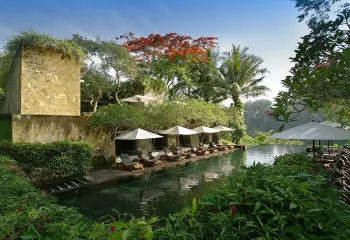Cycling in the ridiculously hot region of Southeast Asia for months on end with no support, camp assistant Brant Haflich and I figured we'd be spending a good amount of time in search of clean drinking water. We had just finished cycling across our own country and we wanted to continue our bicycle adventures while learning something along the way. We wanted a purpose for our pedal strokes and we had questions about global water issues. How do rural villages get clean water? Where do they get it? How does their pursuit of water affect their day-to-day life? So in our own efforts to stay hydrated in a region without easy access to clean drinking water, Brant, a water and sanitation engineer, and I, a journalist, were off and ready for a global water education--by bike. Before we left, Brant developed a compact water testing system that wouldn't weigh down the bikes but would test for "gut flora," or fecal bacteria in water sources--one of the leading causes of death in the developing world. We had a World Health Organization survey on water translated into Thai, Vietnamese, Khmer, and Laotian so we could ask locals questions in languages we didn't know. Without any solutions, we biked off into the South East Asian countryside in search of water stories. What we came home with was something much larger. The further we pedaled the more we began to learn about the psychological and cultural affects of foreign aid, a dialogue I was not prepared to dive into and one that I am still having a hard time coming to terms with.
One of the most poignant moments on the trip took place in the northern mountains of Thailand. We cycled over a rolling ridgeline fire road to visit a water aid project that Brant's friends had started. Nine miles took seven hours--the worst and most rewarding ride of my life. After enduring a few bloody falls, recovering from many moments of low blood sugar, and cleaning up the inches of mud on our bikes and bags, Brant and I spent the next few days with the village leader learning about the water projects implemented by our friends at Engineers Without Borders. Four "slow-sand filters" were put in a few years back and the goal was and is to have local people take ownership over the project. In an effort to make it as simple as possible for the village to maintain their water filtration systems, our friends had trained locals to be able to troubleshoot the systems when they fail. When we arrived, however, three out of the four filtration systems were out of order. The chapter of students had been there a few months earlier and the village was waiting for their return in a few more months. After seeing many other projects in the same disarray, we realized that so often with aid, even aid that seemed to have the most noble of intentions and used the most appropriate of technologies, still seemed to have an umbilical cord from the beneficiary to the benefactor. These projects didn't promote local pride; they made them dependents.
This immobilized me. I believe in the power of others helping others, but when I saw the aid in place I became so discouraged with how I could help at all. The truth is that the individuals in the communities we pedaled through all possess the same intellectual potential as I do. So why do my motivated peers and I implement these projects?
The answer seems clear: we have received a great amount of education and have access to resources. We see problems in the world, and we want to help. Brant spent five years at one of the best engineering schools in the nation learning about how to solve water and sanitation issues, something the average hill tribe village member doesn't have access to. And others, like us, want to use that education to help solve global issues. Yet aid projects seemed to fail when they were not dreamed up by locals and didn't require locals to have a financial incentive to maintain. The few projects we saw that had been designed and implemented by the very people that would benefit from them were still functioning and were a major source of pride for the local community. Because these communities were given the education that not only allowed them to recognize issues but to come up with solutions, they developed projects they could care for themselves. These projects honored local knowledge and nourished many individuals' intellectual potential. After four months of cycling in the hot-hot South East Asian sun chasing water, I couldn't have imagined what I would learn. Like all great journeys, I set out expecting to learn something about the world, but what I ended up learning was something much more personal. What I learned is that we all have a deep desire to feel useful and to be proud of what we achieve. I learned that good aid should nurture this sense of local pride. It should honor the regional knowledge and capability. When aid enables individuals to realize their own potential, there's nothing more powerful and beautiful.










